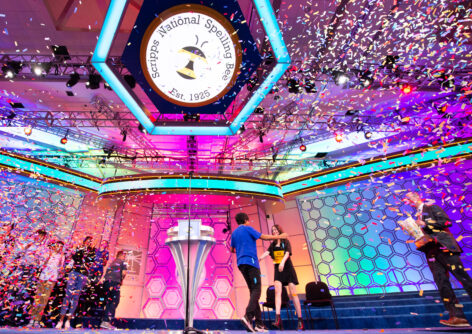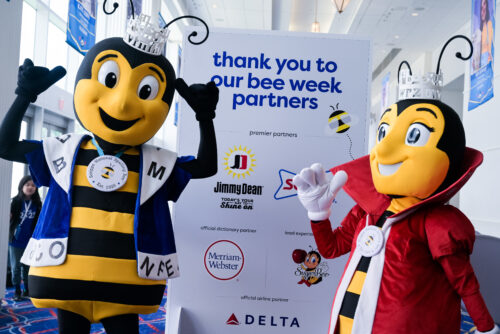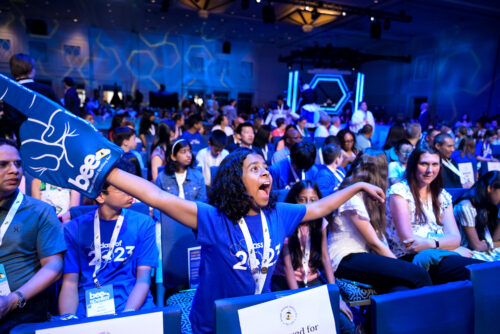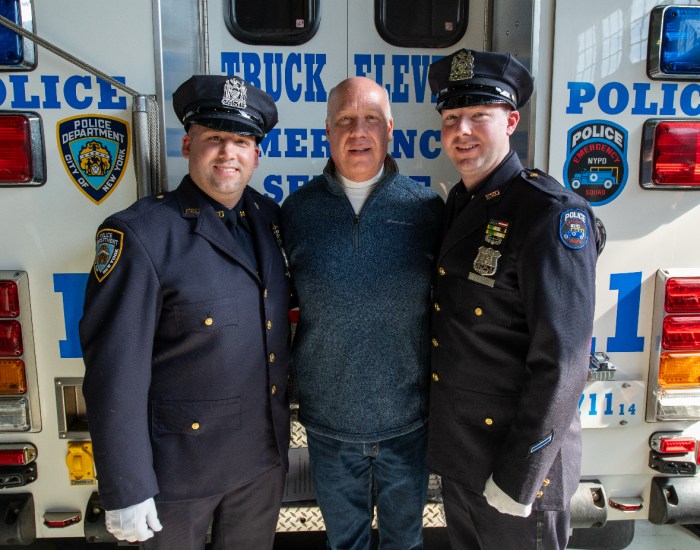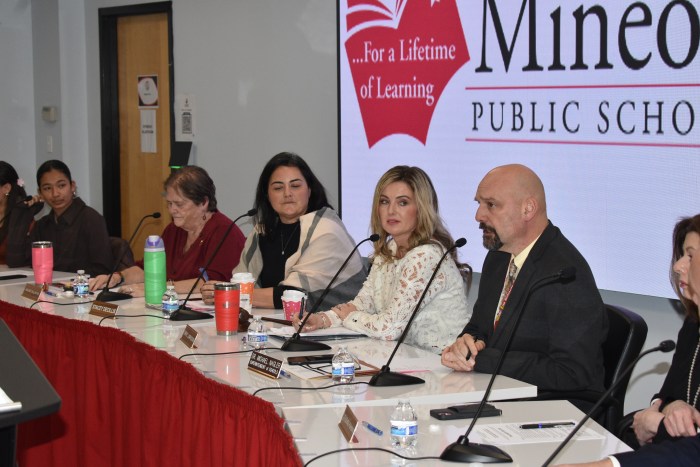From May 28 to May 30, Great Neck North Middle schooler Zelong (Victor) Yang will travel to Maryland to compete in the 96th Scripps National Spelling Bee.
Victor will compete in the nearly 100-year-old tradition with the Scripps National Spelling Bee, dating back to 1925 when nine newspapers joined together to host a spelling bee to promote national literacy. He will be among the students who range from kindergarten to eighth grade. Victor, like other contestants, come from across the country to participate in the Scripps National Spelling Bee Program.

Twelve-year-old Victor has spent the last few months studying and participating in spelling bee qualifier rounds to land second place at the regional spelling bee. Now, Victor will compete against over 200 kids in the Scripps National Spelling Bee for a chance at the championship.
The spelling bee process begins in the classroom. From September to December, schools host classroom and school-wide spelling bees to start the elimination process and prepare students for the regional qualifiers.
“For my school, we started at the classroom level, and then the winners from each classroom went to the school level,” explained Victor. “Each school then sent two students to the regional qualifier, which is online.”
Victor shared that 51 students participated in the regional qualifier. From the regional qualifier, they send three students to the national.
Victor came in second place for regionals. The word that landed him in the top three was “Apistogramma,” which Victor shared is a large genus of freshwater fish.
The words Scripps National Spelling Bee gives to the participants are advanced. To prepare for the spelling bee, students go beyond studying a simple spelling worksheet.
“When I heard the words at the spelling bee, I knew them because I memorized the entire list Scripps gave me,” said Victor. “But studying a list is not possible anymore at this level; it just doesn’t work anymore.”
At nationals, there is a set of possible words for the first three rounds, but everything after that comes from the Merriam-Webster Unabridged dictionary. “I can’t really memorize the whole dictionary because there are more than 500,000 words in it,” said Victor.
Victor uses a two-pronged approach to prepare for nationals.
“One way I practice is using lists of words that are exceptional to usual spelling rules and lists of words that were used in previous years of the bee. The words used previously have a good chance of coming up again compared to a random word in the dictionary,” Victor shared. “The second way I prepare is by studying roots. Many words that you can’t sound out, you can break into roots. A very large percentage of words originate from Latin and Greek roots. At the national competition, the words originally from Latin and Greek make up a significant part of all the words asked. So it’s really useful to study the roots.”
Victor’s hard work and dedication to doing well at the spelling bee inspire not only his peers but also his parents. Victor’s mother, Diane Yang, is immensely proud of her son and excited to see him compete nationally.
“It’s really exciting for parents. We don’t need to study. We only enjoy watching them,” said Diane. “Of course, we were nervous at the regional level, but when he won the top three, we knew he would go to the nationals. We were so relieved and happy. Our goal is to try our best, but we don’t have any specific target or place to achieve in nationals. It’s completely new for us and exciting to see everyone perform.”
In addition to diligently working for the spelling bee, Victor enjoys his math and science classes. In his free time, Victor plays the piano and codes.
The Scripps National Spelling Bee semifinals (Wednesday, May 29, from 8 to 10 p.m.) and finals (Thursday, May 30, from 8 to 10 p.m.) will be broadcast on ION. To find ION in your area, go to https://iontelevision.com/find-us
For more information on the Scripps National Spelling Bee, visit spellingbee.com




